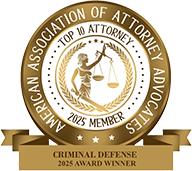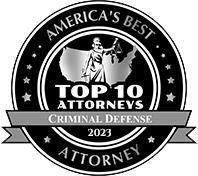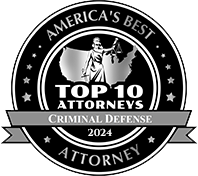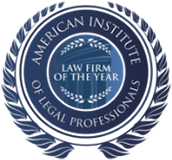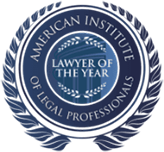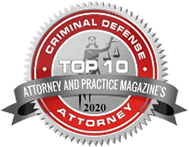

St. Johns County Federal Criminal Defense Lawyers
Federal crimes are typically more complex and carry harsher penalties than state crimes. If you are facing federal charges, you need an experienced federal defense attorney who can help you navigate the federal court system and build a strong defense on your behalf.
If you are facing federal charges, you need an experienced attorney who can help you build a strong defense. At First Coast Criminal Defense, we have the knowledge and resources to handle even the most complex federal cases. Our St. Johns County federal criminal defense attorneys will fight to protect your rights and your future every step of the way.
Call (904) 474-3115 or contact us online to schedule a free consultation with our federal crimes lawyer in St. Johns County.
What is a Federal Crime?
A federal crime refers to a criminal offense that is prohibited by U.S. federal legislation and falls under the jurisdiction of federal law enforcement agencies and federal courts. These crimes are prosecuted at the federal level, and the penalties for convictions are determined by federal sentencing guidelines. It's important to note that federal crimes typically involve offenses that transcend state borders or have a significant impact on federal interests.
Some of the most common types of federal crimes include:
- Drug Trafficking: The illegal distribution, sale, or transportation of controlled substances.
- White-Collar Crimes: Non-violent financial crimes committed by individuals or businesses, such as fraud, embezzlement, and insider trading.
- Bank Fraud: Any fraudulent activity involving a bank, such as forging checks or using false information to obtain loans.
- Mail Fraud: The use of the postal system to carry out fraudulent schemes.
- Wire Fraud: Similar to mail fraud but involves the use of electronic communication, such as phone or internet, to commit fraud.
- Identity Theft: Unauthorized use of someone else's personal information for fraudulent purposes.
- Counterfeiting: The production or distribution of fake currency, goods, or documents.
- Money Laundering: The process of making illegally-gained proceeds (money) appear legal.
- Child Pornography: The production, distribution, or possession of explicit materials involving minors.
- Internet Crimes: Various offenses committed online, including hacking, cyberstalking, and online fraud.
- Weapons Offenses: Violations of federal laws related to firearms and other weapons.
- Immigration Crimes: Offenses related to illegal immigration, such as smuggling or document fraud.
- Human Trafficking: The illegal trade of humans for forced labor or commercial sexual exploitation.
- Racketeering: Engaging in a pattern of organized criminal activity.
- Organized Crime: Criminal activities carried out by organized groups, such as the Mafia or drug cartels.
- Conspiracy: Planning and conspiring with others to commit a federal crime.
- Terrorism: Acts intended to intimidate or coerce a civilian population, often for political purposes.


-
“I have had the pleasure of working with First Coast Criminal Defense, and it was a wonderful experience, I would highly recommend this Firm. They are totally responsive and will walk you through each phase step by step!”- Vincent
-
“First Coast Criminal Defense have been absolutely marvelous”- Jeremy
-
“I will be referring any and every one I know to this law firm.”- Dime
-
“I put my confidence in this company and I have zero regrets.”- Robin
Exclusively Dedicated to Criminal Defense
Reputation Built on Results. Relationships Built on Trust
If you're facing serious charges and need someone who’s earned their stripes on both sides of the courtroom, hire Alex King. A Jacksonville native, National Merit Scholar, and top-of-his-class graduate from the University of Florida, Alex combines elite academic credentials with real-world courtroom grit. As a former DUI Unit Chief and award-winning prosecutor recognized by MADD, he brings unmatched experience handling complex cases. Now a fierce defender of clients’ rights, Alex has successfully represented high-profile professionals in everything from DUIs to international fraud. He doesn’t just know the system, he’s mastered it.

Unmatched Dedication to Defending Your Constitutional Rights
The Team You Want On Your Side
-
24/7 Access to Your Attorney - Any Time, Any Day
-
We Limit Our Caseload, So Your Defense Gets Our Full Focus
-
Your Defense Is Built on the Insight of a Former Prosecutor
-
We're Ready to Fight Any Charge at the State or Federal Level



